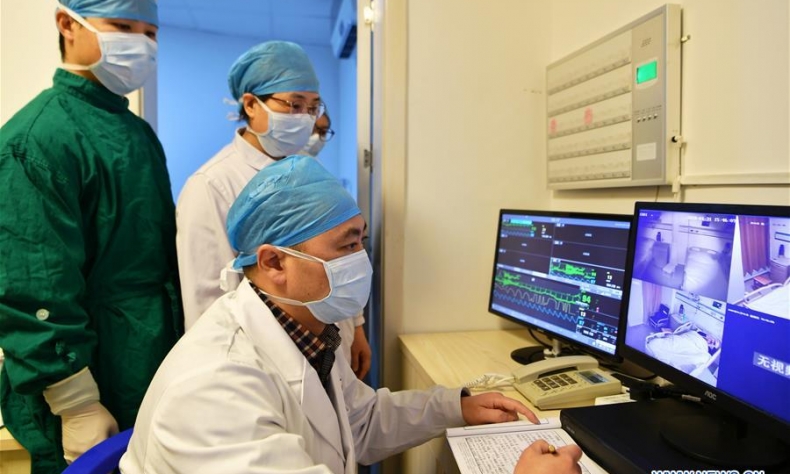China’s Confidence Against Coronavirus

The world has reason to believe that the Chinese government and people will win the battle against the novel coronavirus outbreak through concerted efforts and open international cooperation.
The Spring Festival for the Year of the Rat in 2020 has undoubtedly left deep impressions on all Chinese people. An outbreak of pneumonia caused by a new type of coronavirus that can be passed from person to person swept across China during the heaviest travel period of the year as countless people visited their hometowns for family reunions during the Spring Festival holiday. As the epicenter of the outbreak, Wuhan, a mega-city with a population of more than 10 million, went into unprecedented lockdown to block the spread of the virus.
Although the novel coronavirus epidemic is troubling, the Chinese people have shown strong social mobilization abilities under the leadership of the central government, which has helped prevent and control the epidemic tremendously. On January 25, the first day of this lunar new year, Chinese President Xi Jinping, also general secretary of the Communist Party of China (CPC) Central Committee, chaired a special meeting of the Standing Committee of the Political Bureau of the CPC Central Committee to devise a comprehensive plan to strengthen the prevention and control of the epidemic. A central leading group on combating the virus was established to guide the epidemic prevention and control efforts in various locales. On January 27, Xi again gave important instructions, emphasizing that the battle against the epidemic was firmly in the hands of the people. The same day, entrusted by President Xi Jinping, Chinese Premier Li Keqiang inspected efforts to control the novel coronavirus outbreak in Wuhan. In a January 28 meeting with visiting World Health Organization (WHO) Director-General Tedros Adhanom Ghebreyesus, President Xi stressed that China has full confidence and capability to win the battle against the novel coronavirus with concerted efforts, scientific containment measures and targeted policies under the strong leadership of the CPC.
China’s confidence in this battle does not come out of nowhere. It is fueled by the country’s institutional advantages, technology and experience.
One of China’s greatest advantages is its strong capability to mobilize the whole of society and pool the strength of the entire country to deal with major and urgent affairs. As of January 29, a total of 31 provincial-level regions in China had activated first-level public health emergency responses to the novel coronavirus outbreak.
Communities in both urban and rural areas have rapidly formed grid emergency management with full coverage, widely mobilizing the people to protect themselves and contain the spread of the virus. Many places have effectively implemented joint prevention and control, which have played a positive role in preventing the spread of the epidemic. Strong social mobilization abilities demonstrate that China’s social governance foundation and socialist system are constantly improving under the leadership of the CPC. History has repeatedly proved that the CPC has always served as the backbone of the Chinese people when facing risks and challenges, whether in earthquake reliefs or public health emergencies. Party members have remained the spearhead who carry the weight of the nation on their shoulders and lead the people forward. Many medical staffers and grassroots officials on the front line of the battle against the epidemic are Party members. They have made immense contributions with their practical actions that demonstrate the original aspirations and mission of the CPC.
China’s confidence in overcoming the epidemic is also fueled by the development of medical technology and the country’s progress in information technology. Compared with detection of the pathogen causing the SARS epidemic in 2003, the novel coronavirus was detected rapidly. One week after the first report of the epidemic, the novel coronavirus genome was successfully deciphered and quickly shared with the international community. The significant improvement in efficiency has won precious time for global epidemic prevention and control, which evidences the improvements in China’s medical and health system and the progress in China’s disease prevention and control capabilities in recent years.
At the same time, the battle against the novel coronavirus epidemic has been supported by new technologies such as 5G, telemedicine, cloud platform, big data, and artificial intelligence. Information on population movement from big data platforms has provided references for precise prevention and control of the epidemic. In Sichuan Province, remote diagnosis of two patients infected with acute and severe coronavirus pneumonia was performed with the help of the 5G network. Wuhan Huoshenshan Hospital, a makeshift hospital for treating patients infected with the novel coronavirus, would fully harness the advantages integrating 5G and cloud networks and provide comprehensive information services including telemedicine. As the country overcomes the epidemic, people are feeling the speed and strength of China’s science and technology.
In addition, governments at all levels in China have accumulated rich experience in emergency management after undergoing so many tests brought by major emergencies such as catastrophic floods and earthquakes, SARS and bird flu, and their emergency response capacities have greatly improved. The quick activation of the emergency response mechanism, the rapid deployment of manpower and supplies for epidemic relief, and the openness and transparency of information on epidemic prevention and control, as well as active measures for international exchange and cooperation, all evidence the strong sense of responsibility of the Chinese government in the process of preventing and controlling the novel coronavirus epidemic.
The world has reason to believe that the Chinese government and people will win the battle against the novel coronavirus outbreak through concerted efforts and open international cooperation.
 Facebook
Facebook
 Twitter
Twitter
 Linkedin
Linkedin
 Google +
Google +










